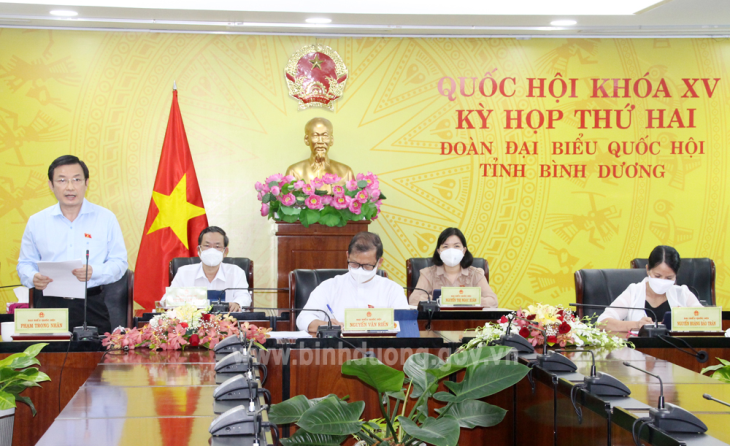The Draft Law on Cinematography (amended) includes 8 chapters and 50 articles, of which 32 articles are inherited, adjusted, amended and supplemented, and 18 new articles are prescribed compared to the current Law on Cinematography. Chapter VI on Promotion and development of cinema; Cinema Development Support Fund, is a new chapter compared to the current Law on Cinematography.
The draft amended Law is consistent with 04 policies proposed in the proposal to develop a Law that has been approved by the Government, including: Creating favorable conditions and encouraging organizations and individuals to participate in film production activities; supporting and encouraging the release and dissemination of Vietnamese films; encouraging and attracting organizations and individuals to participate in the promotion and advertisement of cinema at home and abroad; innovating management, applying advanced technology in the development context of the scientific and technical revolution.
Discussing the draft Law, the deputies said that there should be clear criteria on film appraisal and classification as well as authority and responsibility for film censorship and classification; adjusting the film production order policy. Besides, the delegates were also interested in the State's policy on cinema development; prohibited contents and behaviors in cinematic activities, etc. Deputy Pham Trong Nhan (Binh Duong provincial Delegation of the National Assembly Deputies) said that the draft Law on Cinematography (amended) has up to 17 points stipulating prohibited contents and behaviors. It is worth mentioning that many of the prohibitions in the draft are quite vague with a wide scope that, when applied, will certainly bind the director's creativity, ability to sublimate emotions right from the moment the first emotions are started.

Deputy Pham Trong Nhan (Binh Duong provincial Delegation of the National Assembly Deputies) participates in the discussion on the draft Law on Cinematography (amended)
According to him, "Violating the basic principles of the Constitution and the law" is the first unspecified clause in the draft Law's 17 prohibitions. Reviewing the Constitution, there are only 04 articles referring to the principle, which are "universality, equality, direct and secret suffrage" in Article 7, "democratic centralization" in Article 8, "voluntariness, progress, monogamy" in Article 36 and "dispute in secured judicial activities" in Article 103. So, which of the above principles must be ensured by cinematographic activities? At the same time, does cinematographic activities have to ensure that they do not violate all the principles of the laws in the legal system because almost all laws contain provisions on basic principles? In addition, what is "damaging cultural values", "spreading social evils", "undermining cultural traditions, social ethics, etc." also need to be clarified in order to avoid feelings, subjectivity of the competent authority when holding the balance in the process of approval.
"Aligning cinematographic works to the boundaries of the law requires both respect and caution because it is only subtle enough to feel all human emotions. Vietnamese cinema really needs open, listening and empathetic discussions to erase the boundaries between managers and management objects for a specific activity, bringing a new attitude and approach, more suitable for this draft Law, in order not to let the shadow of the principles of law overwhelm the future of Vietnamese cinema" – Mr. Nhan said.
After listening to the discussions, the Minister of Culture, Sports and Tourism explained and clarified the concerns of the deputies related to the draft Law on Cinematography (amended).
Reported by Phuong Chi-Translated by Nguyen Trang